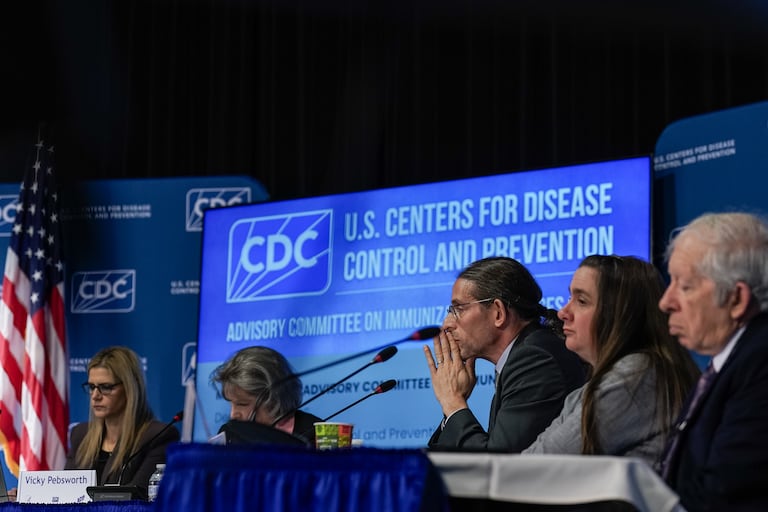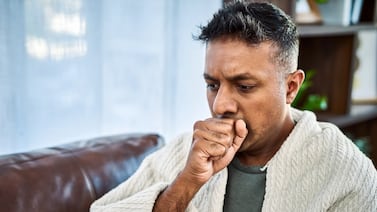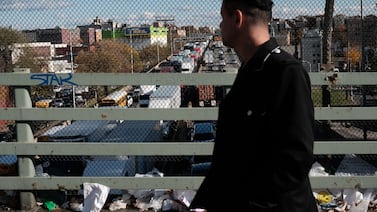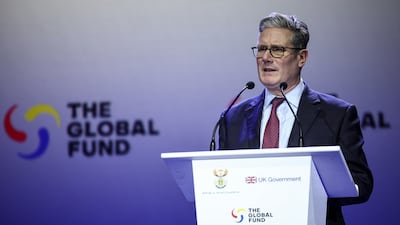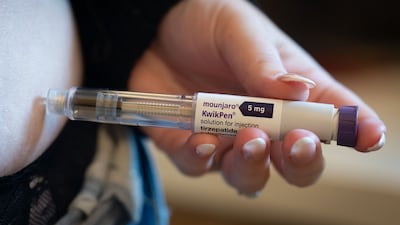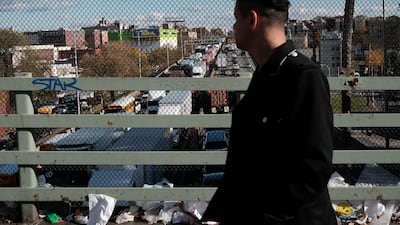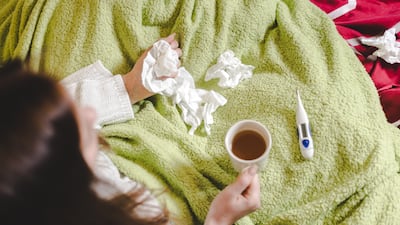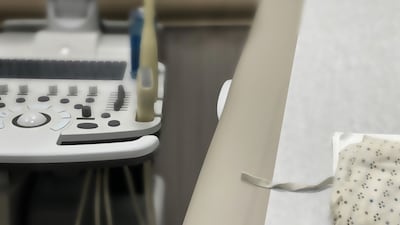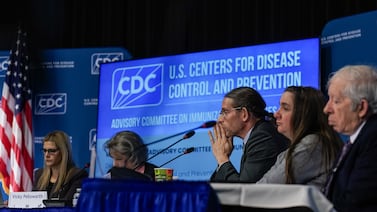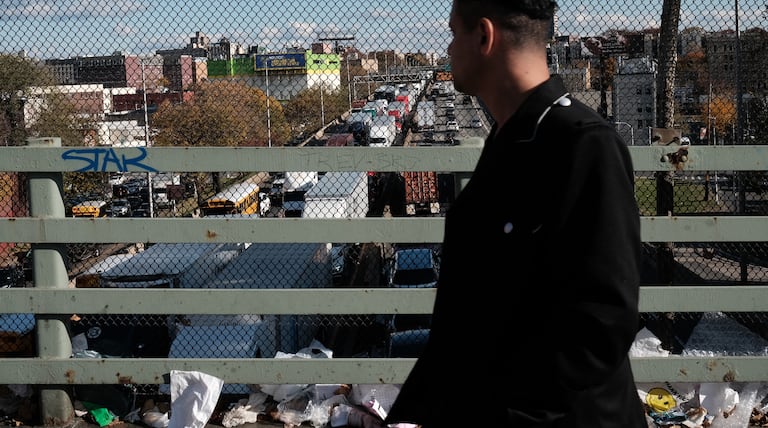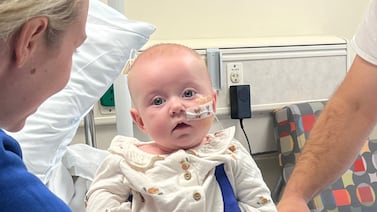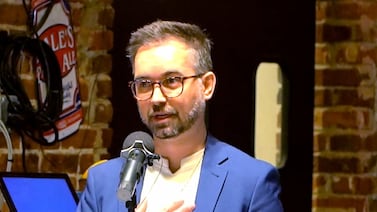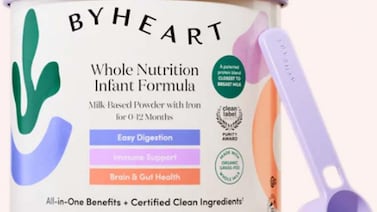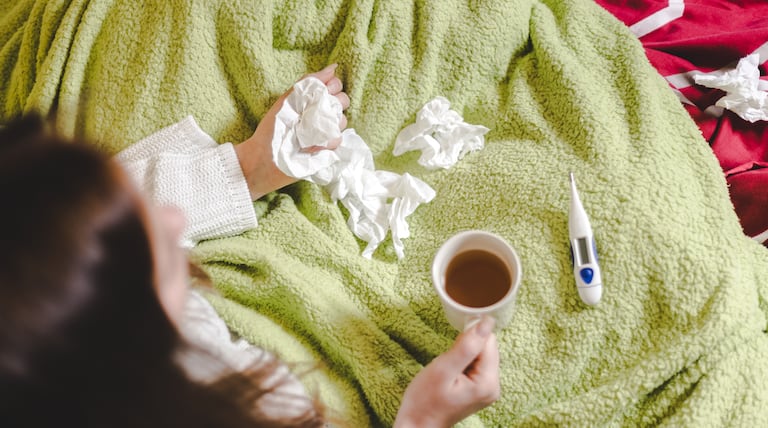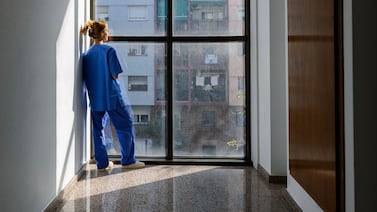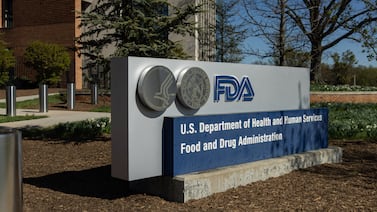Universal infant and childhood vaccination against hepatitis B, recommended since 1991, has reduced by 99% the number of reported cases among U.S. children, adolescents, and young adults.
They urge vaccinations, masking in crowds, and prompt treatment to prevent complications as the winter virus season picks up.
Meanwhile, flu and RSV cases are increasing across the city and state.
Losing its measles-free status could be expensive for the U.S. A new study estimates that an outbreak the size of the one in West Texas earlier this year, with 762 cases and 99 hospitalizations, costs about $12.6 million.
Professor Anant Madabhushi’s work covers AI options for detecting and treating a dizzying range of diseases, from cancer to HIV to cardiovascular disease, in countries from China to Tanzania to Brazil.
They urge vaccinations, masking in crowds, and prompt treatment to prevent complications as the winter virus season picks up.
Universal infant and childhood vaccination against hepatitis B, recommended since 1991, has reduced by 99% the number of reported cases among U.S. children, adolescents, and young adults.
Meanwhile, flu and RSV cases are increasing across the city and state.
Losing its measles-free status could be expensive for the U.S. A new study estimates that an outbreak the size of the one in West Texas earlier this year, with 762 cases and 99 hospitalizations, costs about $12.6 million.
The ACIP is also expected Friday to be briefed on the childhood immunization schedule by a vaccine critic, drawing outrage from U.S. Sen. Bill Cassidy. "The ACIP is totally discredited," Cassidy said.
Professor Anant Madabhushi’s work covers AI options for detecting and treating a dizzying range of diseases, from cancer to HIV to cardiovascular disease, in countries from China to Tanzania to Brazil.
A CDC vaccine advisory committee – whose members were replaced with appointees of HHS Secretary Robert F. Kennedy Jr. – is scheduled to take another series of votes that could reshape longstanding recommendations to protect babies against the cancer-causing hepatitis B virus.
With large donor countries – especially the U.S. – pulling back, a global development think tank has a new idea for funding programs that fight AIDS, tuberculosis, and malaria.
ByHeart’s recall of all of its formula products amid a growing nationwide outbreak of infant botulism has shaken the trust of moms and caregivers – not just in ByHeart’s formula, but also in formula made by other brands.
A physician with JASA, which serves older adults in New York, learns the power of patience and persistence.
The hepatitis B virus is transmitted through blood and bodily fluids, even in microscopic amounts, and the virus can survive on surfaces for a week.
A scientist recalls watching the movie and realizing he didn’t want to be the person who knew how government was controlled, but rather the person who was on the ground with the people affected.
An Atlanta firefighter working an EMT shift recalls an encounter with 'Ms. Mary' that showed him what care should look like.
The leader of the Association of Food and Drug Officials told Healthbeat that the FDA has been slow to share distribution lists for recalled ByHeart formula. “I’m not sure they recognize the sense of urgency,” he said.
The law's broad language threatens the state’s ability to prevent illness and death from infectious diseases, and, if replicated elsewhere, it could unravel decades of progress in public health.
The screenings are not required, but are highly recommended for new arrivals from other countries. They include vision and hearing tests, as well as those for infectious diseases.
As we head into Thanksgiving, when many of us will be traveling to see loved ones, flu and RSV are top of mind. To reduce the spread of illness, consider masking in indoor crowded spaces.
The aim is to keep nurses in the workforce and ward off serious crises for them and their patients. At least 41 states have implemented such programs.
At least 31 infants in 15 states who have been fed ByHeart Whole Nutrition infant formula have been hospitalized with suspected or confirmed infant botulism.
The heart of the guidance is not a list of shiny new, expensive programs. Instead, it is a dramatically unsexy push to make health systems more flexible and more anticipatory.

